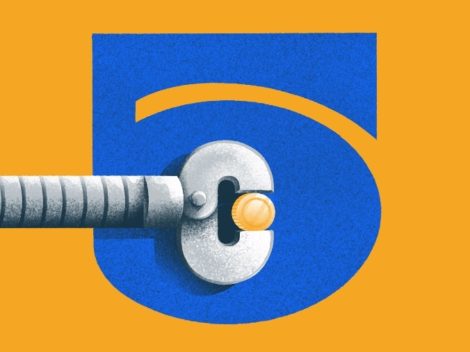Among the many annoying attributes of modern humans is this: We are very noisy.
From highways to leaf blowers to AC units, living in a city or suburb today means a constant barrage of noise from manmade technologies. That’s not to mention the racket humans make all by ourselves, as anyone who’s lived below a stomper or shared quarters with a snorer can attest.
Search less. Close more.
Grow your revenue with all-in-one prospecting solutions powered by the leader in private-company data.
Over time, it takes its toll. But although we continue to see the persistent and the deleterious effects of excess noise, from disturbed sleep to impaired hearing, it tends to be underrepresented in our public discourse around quality-of-life issues.
“It can be difficult to ‘show’ the negative impact of noise, visually it’s just not a great headline-maker, and it doesn’t film well,” said Andrew Schulz, co-founder and chief growth officer of NoiseAware, a noise monitoring service. “But that doesn’t mean it’s any less harmful than other, more visible, forces.”
Fortunately, startups are on the case. After a little poking around in the Crunchbase dataset, we were pleasantly surprised to find that recently funded startups are doing a fair amount on this front. Focus areas range from tools to block conversational background sounds to noise monitoring devices to digitally creating “quiet bubbles” in the physical world.
We put together a list of startups funded since last year that are focused on noise reduction or developing quieter versions of existing products:
Some of the standouts include:
- Silentium, an Israeli company, develops acoustic technologies and algorithms that it says can be applied to create personal sound spaces and to eliminate unwanted noise in cars, homes and industrial settings. It’s raised $42 million to date.
- Krisp, a Berkeley-based startup, sells AI-powered tools that can remove background noise and echo from online meetings, leaving only human voice. It’s raised $17.5 million to date.
- NoiseAware, based in Dallas, doesn’t block noise, but it does issue alerts when ambient sounds exceed an acceptable threshold. Its offerings have attracted customers for multiple use cases, including vacation rental operators who want to shut down loud house parties. It’s raised $8 million to date.
- AdBm Technologies, based in Austin, is focused on noise abatement in marine environments. The startup has developed a patented underwater noise mitigation system to lessen the environmental impact of industrial activities. It has raised $2.7 million.
Quieter products for a noisier world
Besides specifically addressing noise abatement, several startups are working on versions of products that are quieter than their predecessors.
For instance, Nothing, a British startup that has raised over $150 million to date, is developing a smartphone and noise-canceling earbud that allows users to switch background noise on and off. On the transportation front, San Francisco’s Lightship has raised $27 million so far to build an all-electric RV that it says will provide “whisper quiet power while camping.”
Of course, startups innovating around quieter versions of existing products isn’t a new development. In many cases, sound reduction is essentially a side feature, such as for EVs. In other cases, home appliances for example, over the years newer versions tend to run more quietly and make fewer noises.
Yet, with all the technological progress available to apply to noise reduction, for many of us, life is just getting louder.
The World Health Organization estimates that over 1 billion people aged 12 to 35 risk losing their hearing due to prolonged and excessive exposure to loud music and other recreational sounds.
And while the WHO suggests that healthy noise levels should not surpass 55 decibels during the day and 40 at night, ambient sound in many major cities, from New York to Bangkok to Islamabad, well exceeds that level.
And ironically, our acclimation to noise is actually contributing to some innovations that make life louder. Electric cars, for instance, are required to emit noise when traveling below a certain speed so that people can be aware of their approach.
A growth market?
Still, as life gets noisier, noise abatement looks like a growth market.
One analyst report projects the global market for noise canceling headphones alone will reach $5.2 billion this year and grow to over $9 billion by 2032. Researchers attribute growth to greater affordability along with smaller, more comfortable product designs.
Prospects also look bright for the opposite end of the market—products to help people pick up sounds they can’t otherwise hear. In the U.S., a new FDA rule announced this week will allow people to buy hearing aids without a prescription, in a bid to make devices more affordable and easier to obtain by the millions of consumers who need them.
Ideally, greater proliferation and technical sophistication of both noise cancellation and hearing assistance devices could lead to that perfect in between: A world where we can hear our conversations clearly, and block out all the extraneous noise that stands in the way.
Illustration: Dom Guzman

Stay up to date with recent funding rounds, acquisitions, and more with the Crunchbase Daily.



![M&A - Illustration of a magnet attracting various products. [Dom Guzman]](https://news.crunchbase.com/wp-content/uploads/mergers_and_acquisitions-470x352.jpg)



![Illustration of a guy watering plants with a blocked hose - Global [Dom Guzman]](https://news.crunchbase.com/wp-content/uploads/quarterly-global-3-300x168.jpg)
67.1K Followers